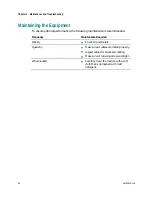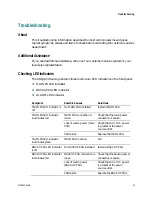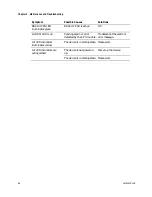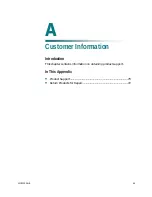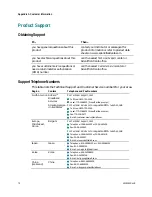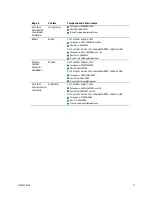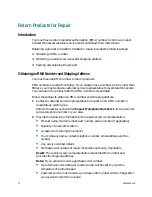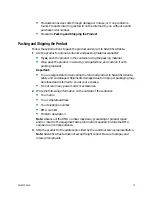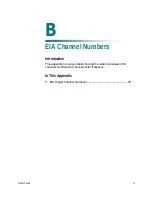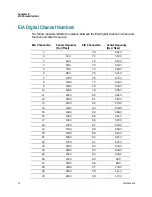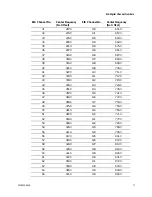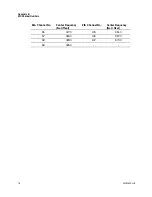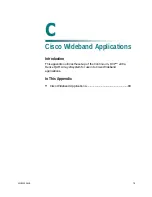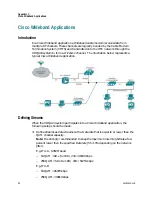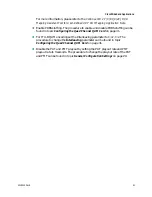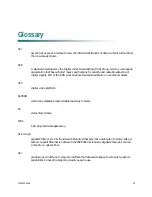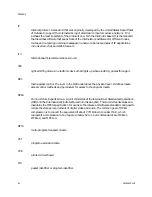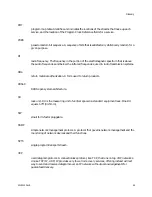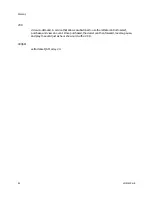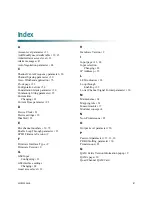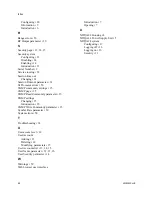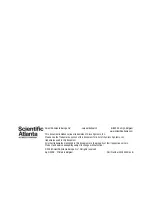
Appendix C
Cisco Wideband Applications
Cisco Wideband Applications
Introduction
In a Cisco Wideband application a Wideband cable modem receives data from
multiple RF channels. These channels are logically bonded by the Cable Modem
Termination System (CMTS) and transmitted onto the HFC network through the
XDQA24 system to form a Wideband channel. The illustration below represents a
typical Cisco Wideband application.
Defining Streams
When the XDQA24 system participates into a Cisco Wideband application, the
following setup should be made:
Define streams as data streams with a Data rate that is equal to or lower than the
QAM channel capacity.
Note: It is strongly recommended to keep the maximum incoming bitrate a few
percent lower then the specified Data rate (5 to 10% depending on the network
jitter).
E.g. ITU-A, 6.952 Mbaud
-
64 QAM = SR x 6 x 188 / 204 = 38440 kbps
-
256 QAM = SR x 8 x 188 / 204 = 51253 kbps
E.g. ITU-B
-
64 QAM = 26970 kbps
-
256 QAM = 38810 kbps
80
4018055 Rev B
Summary of Contents for Continuum DVP eXtra Dense QAM Array 24
Page 1: ...4018055 Rev B Continuum DVP eXtra Dense QAM Array 24 Configuration Guide...
Page 2: ......
Page 4: ...For Your Safety iv 4018055 Rev B...
Page 6: ......
Page 10: ......
Page 12: ......
Page 14: ......
Page 24: ......
Page 32: ......
Page 44: ...Chapter 3 Configuring the XDQA24 System 30 4018055 Rev B...
Page 64: ......
Page 88: ......
Page 96: ......
Page 103: ......

